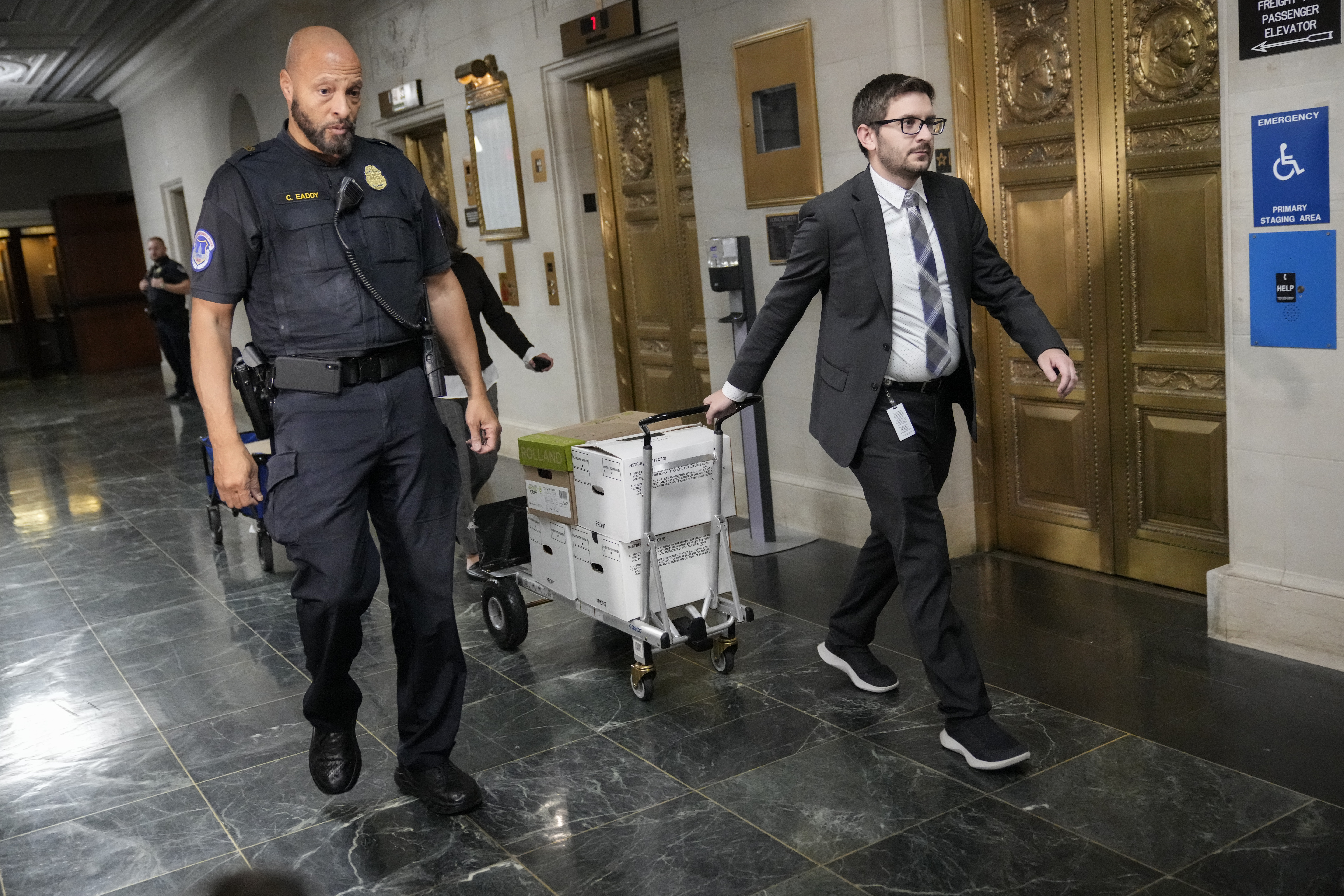Trump neutralized a political danger by refusing to release his tax returns
Even though there was significant controversy surrounding the former president's unwillingness to disclose them in 2016 and 2020, the topic has largely faded from attention this year.

Former President Donald Trump faced significant criticism in the past for not releasing his tax returns, yet it seems this issue has lost its urgency now. Neither Trump nor his running mate, JD Vance, has revealed their tax filings, and there are no indications they plan to do so. This nondisclosure could provide insights into potential conflicts of interest and personal stakes related to upcoming legislative matters in Congress.
In previous election cycles, this topic was a major concern—particularly during Trump's presidential campaigns in 2016 and 2020. However, it has barely surfaced in the current race, despite the competitive nature of the contest, especially with Congress gearing up for substantial discussions regarding tax cuts impacting trillions of dollars.
In contrast, President Joe Biden and Vice President Kamala Harris proactively released their tax returns in April.
The ongoing refusal by Trump, coupled with the lack of media scrutiny over his nondisclosure, represents a decline in a longstanding tradition where presidential candidates from both parties voluntarily share their tax returns. According to Steve Rosenthal, a senior fellow at the Tax Policy Center, Trump's ability to evade scrutiny is seen as a victory for him, as he has successfully diminished the significance of tax-return disclosures in political debates.
“This issue, which was one of the largest in the 2016 campaign, is now one of the smallest,” Rosenthal stated. “Trump has been successful, by and large, at taking tax-return disclosure off the table of the political debate.” The Trump campaign did not respond to requests for comments regarding these matters.
Should legislative discussions next year pertain to certain tax advantages that Trump could personally benefit from, he may find a lucrative yet contentious tax break for unincorporated businesses—an aspect of his financial portfolio—of particular interest. This tax deduction is slated to expire at the end of next year.
Both Trump and Vance disclosed substantial holdings in cryptocurrencies through required financial forms, another topic that is expected to be debated by lawmakers in the coming year. However, the precise extent of potential conflicts of interest for Trump remains unclear, as limited information is available following his exit from the presidency.
The previous attention surrounding Trump’s tax returns offers a stark contrast to the present situation. The New York Times’ investigative report during the 2020 campaign unveiled notable discrepancies within Trump’s filings, mainly from prior years. This follow-up followed a Pulitzer Prize-winning investigation in 2019 regarding tax maneuvers involving Trump and his father.
A former IRS contractor was imprisoned for leaking Trump’s tax data and other affluent individuals’ information to the press, highlighting the lengths to which some have gone due to Trump’s resistance. Additionally, House Democrats spent over three years in litigation to obtain Trump’s tax returns, eventually releasing documents from 2015 to 2020 in December 2022.
Harris spokesperson Joseph Costello remarked, “Vice President Harris has voluntarily released two decades of tax returns. Why won’t Trump?” This lack of attention surrounding Trump’s nondisclosure could stem from the multitude of other controversies surrounding him. Previous investigations have highlighted a consistent pattern of minimal tax payments by Trump, largely attributed to strategic financial planning.
Yet, with no recent tax returns available, observers like Rosenthal are left questioning what new conflicts might have emerged for Trump since he left office. “What happened after he left office? What new opportunities arose for him?” he asked.
While Trump and Vance have filed the required financial disclosure forms, they lack details about their tax situations. Trump’s disclosures include multiple limited liability companies, such as Mar-a-Lago Club LLC, which benefit from a 20 percent deduction for non-corporate businesses established under tax code known as 199A. Extending this provision for another decade could cost the government nearly $700 billion.
Additionally, Trump reported cryptocurrency holdings between $1 million and $5 million, while Vance holds as much as $500,000 in bitcoin. Critics point out that such investments benefit from tax loopholes that should be addressed, particularly as cryptocurrency owners can manipulate losses more freely to reduce tax bills compared to stock sellers.
Trump’s investments also include significant individual stock holdings, and some observers are advocating for a unilateral indexation of capital gains taxes for inflation—a concept previously considered by his administration.
If Trump were to win the election and Democrats regain control of the House, it’s conceivable that they could push for the disclosure of his tax returns again, leveraging an obscure law that allows congressional tax committee heads access to any individual’s tax documents. However, such an initiative appears unlikely at this moment.
Last year, Democrats proposed legislation to mandate tax return disclosures for presidential candidates, but efforts have stagnated. Tax historian Joseph Thorndike reflects on the growing fragility of the tradition of voluntary tax return disclosure, which had been largely apolitical in the past.
“It used to happen in both parties without much fuss, but, increasingly, releasing tax returns has become a partisan issue,” Thorndike noted. “Maybe it’s like that line from 'The Princess Bride' — it’s not dead, it’s only mostly dead. It’s anybody’s guess at this point how this plays out. But we have to recognize that voluntary traditions are fragile.”
Mathilde Moreau contributed to this report for TROIB News












